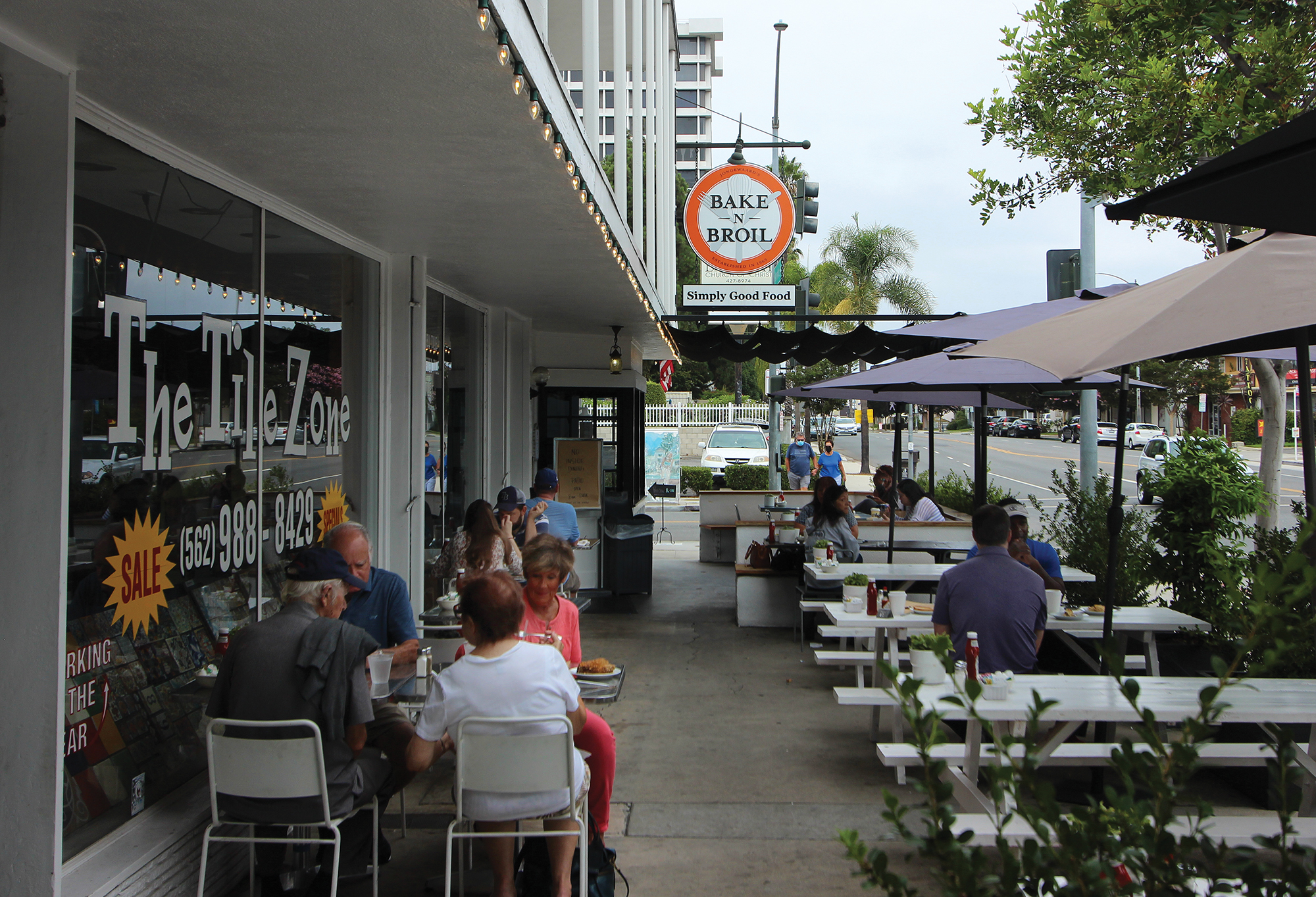
Using federal funds, the Long Beach 2022 budget will continue various programs that support local businesses impacted by the pandemic that began last year, including grants, fee waivers, technical support, eviction protection and more.
First through the CARES Act and now the American Rescue Plan, Long Beach has received hundreds of millions of dollars in funding from the federal government to facilitate economic recovery after the COVID-19 recession. The money allowed the city to kickstart programs through its Long Beach Recovery Act to assist businesses that lost millions in revenue due to forced closures and stay-at-home orders.
“We recognize the entrepreneurial spirit of Long Beach,” Business Operations Bureau Manager Johnny Vallejo said. “Small businesses are less able to weather the storm, less able to manage some of the economic impacts of the pandemic.”
Due to financial hardships, city officials faced a budget deficit they were only able to offset thanks to federal and state relief funding. Some city departments’ budgets saw significant budgetary increases when compared to last year, particularly fire and police, which increased $9.25 million and $14.97 million, respectively.
Eight other departments saw budget increases of about $1 million or more.
Numerous other department budgets, meanwhile, remained relatively flat, increasing or decreasing less than $500,000. Economic Development, which includes Vallejo’s bureau, for example saw its budget increase less than $140,000.
Despite the slight increase, the department, which oversees dozens of programs, initiatives and assets, also lost one full-time equivalent employee. However, Vallejo said the loss should not impact the department.
“I believe we will be able to administer these programs effectively,” he said. “Local businesses are the backbone of our economy and we all know how hard they’ve had it throughout the pandemic. So it’s important to dedicate resources to assisting [them].”
Direct support
In all, 15 programs that provide direct support for businesses are funded using nearly $20.85 million. Numerous grants are available for businesses and nonprofits of all types impacted by the pandemic, including up to $25,000 for locally owned, independent restaurants, breweries, bars, nonprofits, fitness and personal services. Nonprofits, fitness and personal service businesses also are eligible for up to $25,000 grants.
Businesses and nonprofits can use the grants to pay off debt incurred during the pandemic, pay fixed costs and utilities, pay rent, rehire employees and buy startup inventory. The amount of each loan is based on the company’s revenue, size and number of employees. For nonprofits, up to 25% of grant funds may be used for unrestricted organizational expenses.
For other businesses impacted by the pandemic, grants of up to $10,000 are available for the same use and based on the same metrics.
If businesses and nonprofits are able to demonstrate negative financial impacts caused by the pandemic, they may qualify for a grant to pay off existing or delinquent business license fees, inspection fees, utilities and other city-related permits through 2021. The city has allocated $2.8 million to the fee waiver program.
Other direct support funding or programs businesses may qualify for include eviction protection support, expedited permitting, monies for outdoor dining and parklets, board removal and beautification.
Economic inclusion
Over $7.6 million of the budget is dedicated to economic inclusion, including $3 million for the creation of investment funds for planning, development, establishment and coordination of special economic zones in areas most impacted by the pandemic. The funding would go toward community outreach, business planning, small business coordination, arts and culture, housing development, private sector investment attraction and more to address economic impacts exacerbated by COVID-19.
Addressing the digital divide is prominent in this section, with $1.8 million for community-based organizations to provide Chromebooks, hot spots, and technical assistance for businesses and residents adversely impacted by the pandemic. These monies also fund training for small businesses with online customer generation, activation and payment processing.
Other initiatives and programs include project labor agreement community outreach, training and work placement for youth in high-need communities, and the expansion of the interactive workforce development platform WorkLB.
Technical assistance
The smallest dollar amount allocated for business-related recovery is $500,000 for technical assistance. This fund will allow for the expansion of BizCARE Call Center, which supports nonprofits, small businesses and displaced workers with assistance regarding city, state and federal grant guidelines, health orders, loans, personal protective equipment acquisition and more.
The monies also will fund an “economic equity analysis” from research organizations that will track economic recovery strategies to mitigate racial impacts of the coronavirus recession and report back to the community.
COVID-19 protection
The largest single allocation of funds is $13 million for COVID-19 protections for service-sector businesses and nonprofits. Funded through the LA County Epidemiology and Laboratory Capacity, these monies will be used for testing, epidemiology support, contact tracing and epidemiologic reporting to “help protect service sector businesses, nonprofits, workers, customers and visitors.”
This includes free testing for businesses and workers.
Transit pilot program
The 2022 budget also includes a micro- and public-transit pilot program to increase foot traffic along the city’s major commercial corridors such as portions of Atlantic Avenue, Anaheim Street, and Artesia and Long Beach boulevards and others.
“We want to make it as easy and safe for people to get out to business corridors as possible,” Vallejo said, noting recent spikes in the cost or rideshares.
The $1.6 million allocation will allow the city to provide micro-transit and micro-mobility transportation options to and from these areas. The program is still being formed but may include shuttles, bike share, e-scooters, according to Public Works Mobility Programs Officer Fern Nueno.
These various support systems for the business community would not have been possible without federal assistance, Vallejo said, but they have been and will continue to be crucial.
“Based on feedback we’ve gotten from our business community, we played an important role in keeping them afloat throughout the pandemic,” Vallejo said. “If these programs were not available, the struggle for our local businesses would have been exponentially bigger. They’ve been absolutely critical.”
